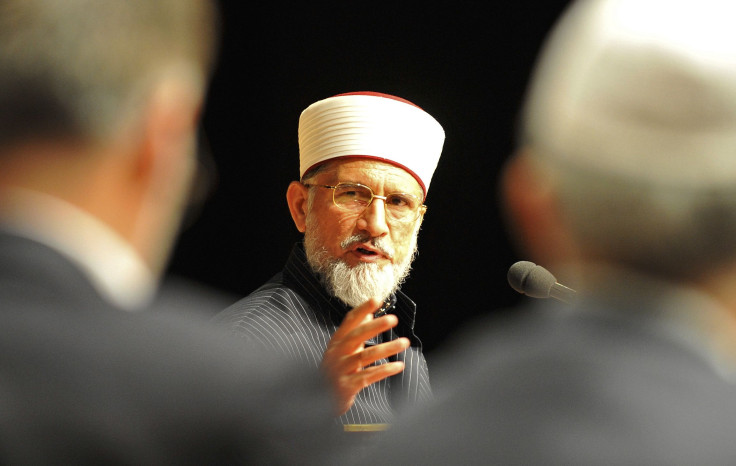Clashes Erupt In Pakistan's Lahore, Killing 7 People And More Than 500 Getting Arrested

Clashes between Pakistani security forces and the supporters of an anti-government leader, killed seven people on Saturday while officials arrested more than 500 people.
Nearly six Pakistani police officials were also reported missing after the violence that started Friday and spilled over to Saturday in the northeastern city of Lahore in Punjab. The violence comes as Tahir ul-Qadri, a popular cleric in the country who had led anti corruption movements in 2013, promised to lead a peaceful revolution on Sunday, to protest the violence against his supporters in July when 14 of them were killed in clashes. He also demands that the current Prime Minister Nawaz Sharif be overthrown, while his supporters were reportedly trying to march to his house in the city.
Qadri had reportedly said in a statement on Thursday, according to Al Jazeera, that if officials keep arresting supporters of his Pakistan Awami Tehreek movement, then the group would have "no choice other than giving a final call of revolution to the entire nation to come out on streets and march towards Islamabad and provincial capitals to topple [the] government.”
The security in Lahore was strengthened after Friday's clashes while officials, who manned checkpoints through the richest city in country, claimed that the protesters had attacked the police first. Some supporters of Sharif reportedly claim that the protesters may be getting assistance from a few military groups, while the Pakistani military denies interfering into the region’s politics, according to the Associated Press.
Rana Mashood, the provincial minister of Punjab, claimed, according to AP, that the fighting started because Qadri’s supporters attempted to move the police’s shipping containers, which were being used as roadblocks. But local reports suggest that the protesters denied such claims.
© Copyright IBTimes 2025. All rights reserved.






















